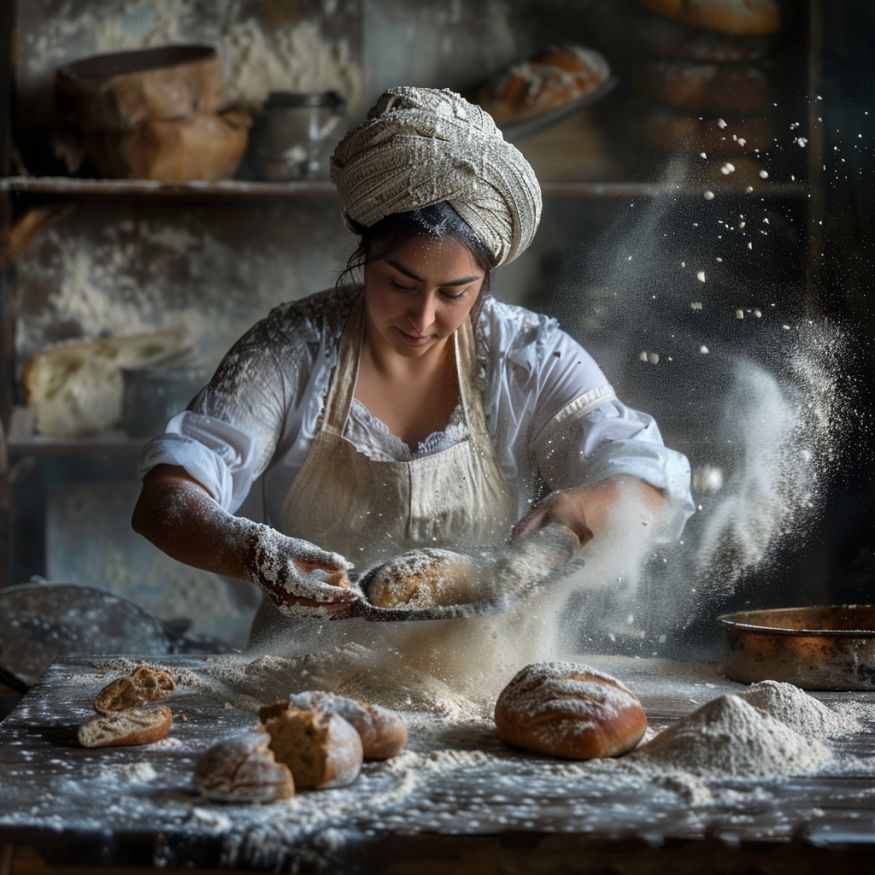During a recent stay at my aunt's house, I unexpectedly found myself enveloped in the warm, comforting aroma of baking bread, despite the late hour. It was, indeed, the stroke of midnight when my aunt, donning her apron and oven mitts, was pulling a freshly baked loaf out of the oven. This sight, quaint as it may sound, sparked curiosity.
What drives an individual to take on the task of bread-making in the wee hours? To the uninitiated, the act of nocturnal baking may seem peculiar, yet beneath the surface, there is a web of reasons that can make this practice surprisingly common.
Advertisement
Investigating the Nighttime Baking Phenomenon
The curiosity aroused by my aunt's nocturnal baking piqued my interest, prompting an exploration into the reasons this might happen more often than we suspect. Here are some possible explanations:
1. The Therapeutic Angle
Baking can be a meditative activity. For some, the quiet of the night provides a peaceful backdrop for the therapeutic act of kneading dough and the rhythmic routine of baking. It's a period of solitude where the baker can focus entirely on the task at hand, often serving as a stress-reliever from the hustle of the day.
2. Insomnia or Irregular Sleep Patterns
Those who have trouble falling asleep or who wake up in the middle of the night may turn to baking as a productive and comforting way to spend their time. Instead of tossing and turning in bed, they make use of the extra hours to create something delicious.
3. Preparation for the Day Ahead
Some people bake at night to prepare for the following day, particularly if they anticipate a busy schedule. Fresh bread for breakfast or specialty loaves for social events can be ready without encroaching on the day's itinerary.
4. Optimal Kitchen Conditions
Baking bread requires a warm environment for the dough to rise properly. During colder seasons, a home might retain more warmth in the evening after a day’s heating, providing an ideal climate for bread making.
5. Scheduling Constraints
For some, the late hours might be the only available time to purposefully engage in baking due to work schedules, family responsibilities, or other daytime commitments.
6. The Quiet Appeal
The nocturnal quietude is seen by some as the perfect backdrop for focus and creativity. The night, devoid of distractions or interruptions from phone calls and social media, could foster a more connected baking experience.
7. Embracing a Hobby
For avid bakers, any time is the right time to indulge in their hobby. The night might present an opportunity for them to experiment with new recipes or perfect old favorites without the constraints of a schedule.
8. Cultural or Personal Traditions
In some cultures or family traditions, baking at certain times of the day or night is tied to specific practices or beliefs. It may also simply be a personal tradition that has developed over time.
While not everyone may find themselves mixing flour and yeast at midnight, it's evident that the practice is not as uncommon as one might first think. It speaks to the diverse rhythms and routines that color the human experience. From the therapeutic to the practical, there are myriad reasons why someone might choose to engage in the intensive process of bread-making after hours.
Advertisement
Moreover, it suggests a remarkable aspect of baking itself—it transcends time. Whether one is a nocturnal baker by circumstance or by choice, the act is bound by a common thread: the magic of transforming humble ingredients into nourishing, sensory delights that are worth staying up for. So, the next time you catch a whiff of freshly baked bread under the moonlight, know that there is a story, a reason, and perhaps an entire tradition behind that late-night loaf.

